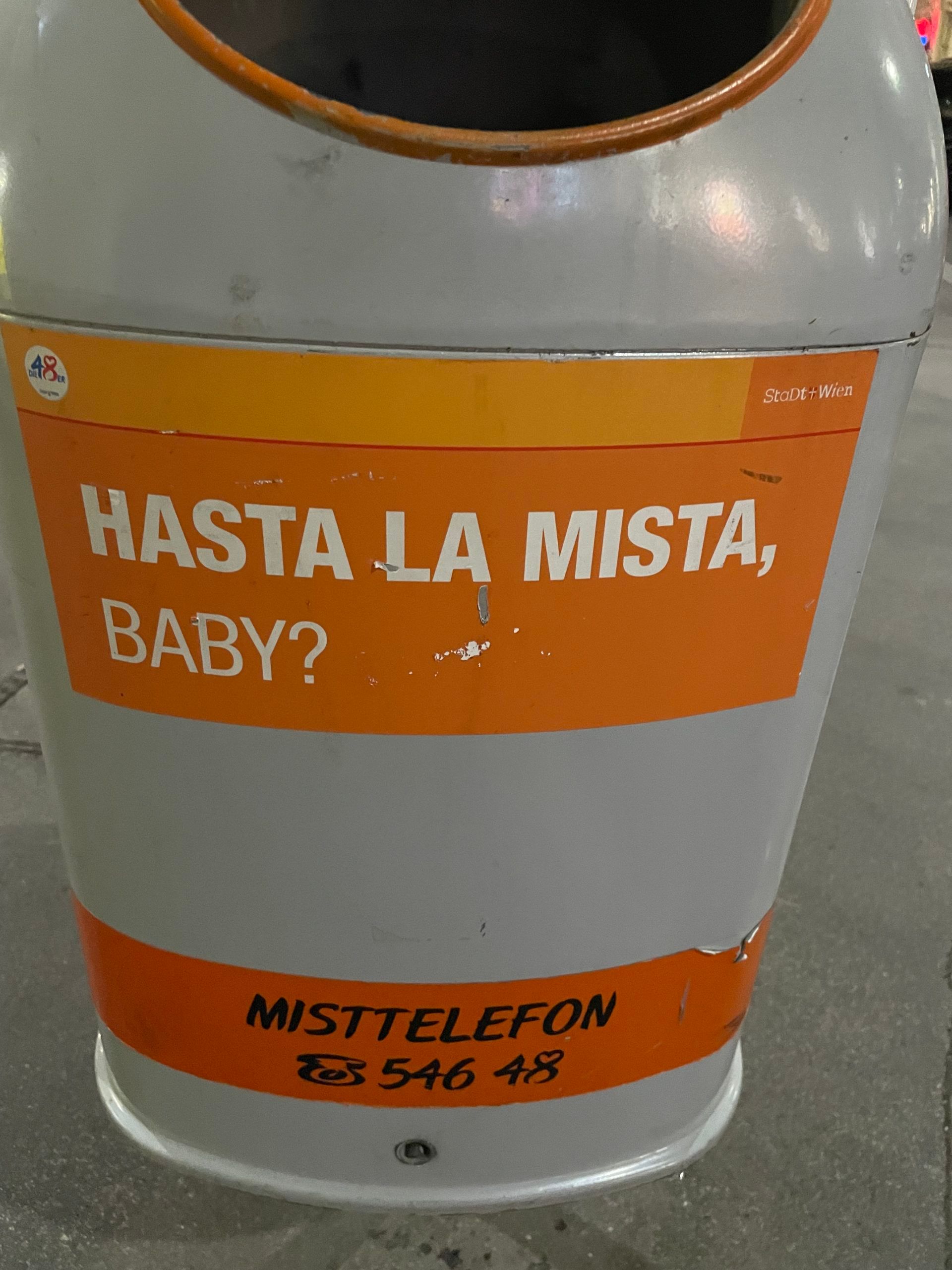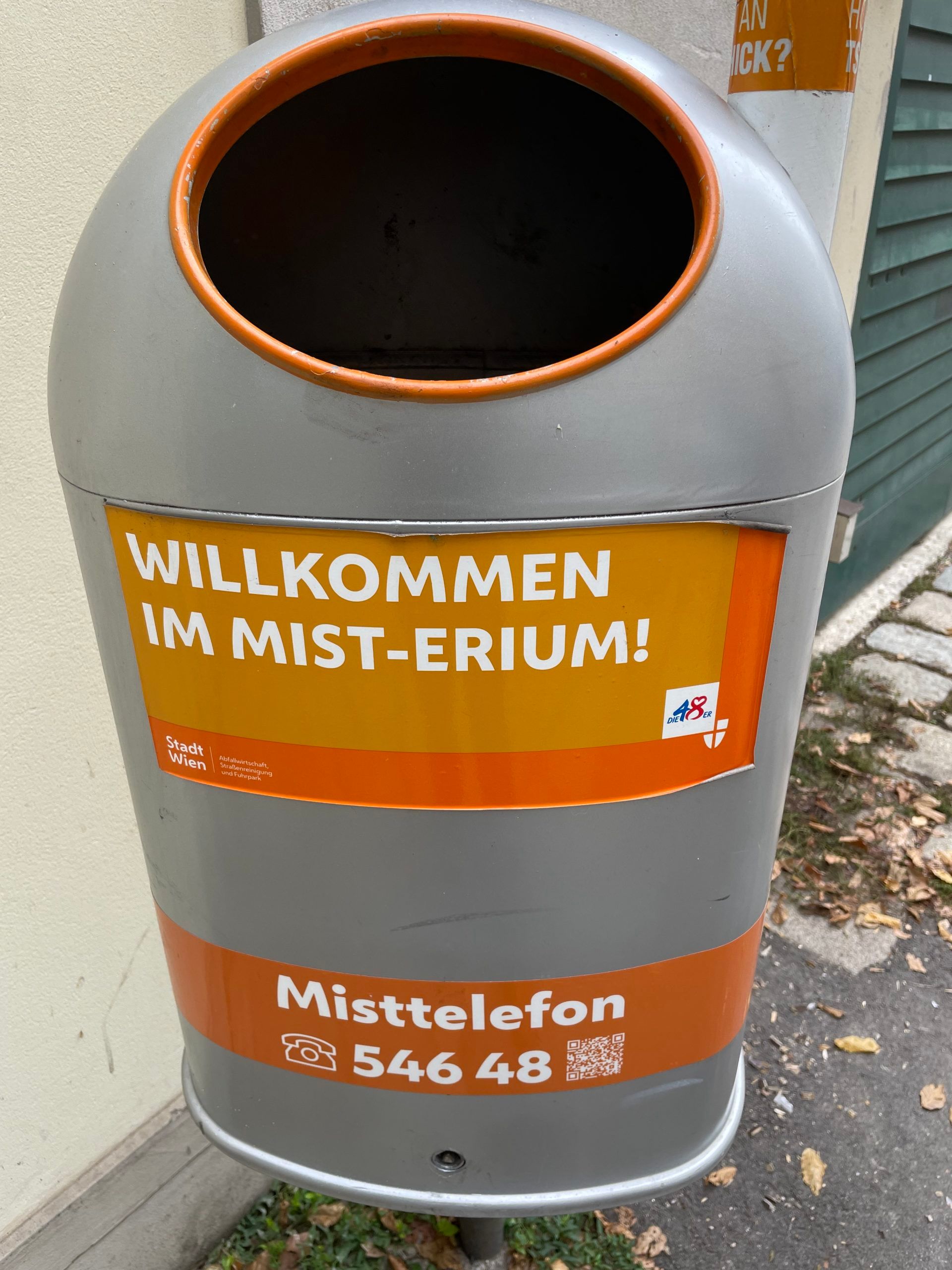This was intended to be a learned discourse on the differences between Germany and Austria for German language translation after a recent trip to Vienna. But the thing about travelling with linguists is that they get distracted. So, my long-suffering wife had to endure my chuckling regularly on encountering dog-poo bins around the city. ‘Mist’ means ‘poo’ in German (other English translations are available). So very well done to the Vienna City waste bin department for labelling one bin near the Finance Ministry; ‘WILKOMMEN IM MIST-ERIUM!’. Or at a bus stop, we have: ‘NÄCHSTE HALT: MISTKÜBEL’ (next stop: poo bucket). Then we have the whimsical bin: ‘DER TUT NIX! DER WILL NUR MÜLL‘(This isn’t doing anything, it just wants your rubbish.) A poetic bin: ‘ELIZABETH, SEI SO NETT’ (Would you be so kind, Elizabeth…which rhymes perfectly in German).
Now to talk about German language translation. While both Germany and Austria share the same official language – German – there are notable distinctions between the two that should be considered, especially in professional settings such as pharmaceutical translation.
There are noticeable differences in vocabulary. In Austria, certain everyday words differ from their counterparts in Germany. For example, in Germany, the word for a potato is Kartoffel, but in Austria, it is commonly referred to as Erdapfel. Similarly, cream is Sahne in Germany but Schlagobers in Austria, and January is Januar in Germany but Jänner in Austria. These variations can impact how well a translated text is understood or accepted by local audiences.
But whilst written standard German is largely consistent between the two countries, spoken language can vary considerably. Austrian German has its own distinct pronunciation and dialects; it has something of a charming sing-song quality to this non-native speaker. These differences can sometimes make the language feel more formal or traditional to German speakers from Germany. It is important to consider these factors when translating audio or video materials into German, as an Austrian accent may resonate differently with German audiences. Though the differences between German in Germany and Austria are subtle, they can affect the tone, clarity, and effectiveness of a message. For companies looking to expand into either market, working with professional translators and interpreters who understand these nuances is essential for ensuring accurate and localised communication. We only ever ask translators to work into their mother tongue – so translation about a product to be marketed in Austria only would be best translated by an Austrian native.
Back to the Vienna City bin department, and I was tempted to ring the poo-hotline to congratulate them on this one; ‘HASTA LA MISTA, BABY?’
At Alexika, we have been translating to and from German, and helping people working and trading in many industries and professions, for over 25 years. What can we do for you?
Mark Robinson



